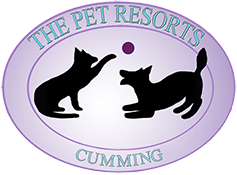What is Rawhide?
Although many dog owners are big fans of rawhide, as their dogs really enjoy having a good old chew on it, rawhide for dogs isn’t as harmless as it looks. In fact, this can be very dangerous for pups, as it can cause intestinal blockages and can also be a choking hazard. Because of this, it’s best to avoid giving your pup rawhide and seek safer alternatives for your pet to gnaw on!
What is rawhide?
Rawhide is a dog chew that’s a by-product of the leather industry. It’s made from the inner layer of either cow or horse hides (which is their skin). The outer layer of the hides is the leather part that’s used for shoes, garments, upholstery, etc. The inner rawhide is treated, dehydrated and then formed into various shapes as a dog chew. The most common type of rawhide for dogs is a rawhide bone which is made up of layers of rawhide manipulated into a bone shape.
How is rawhide prepared?
Once the hide has been separated from the animal, it’s first dipped into high salt brines to slow the decay which can make it very salty. The hide will also be cleaned with detergent and degreasers and sterilised with low concentrations of hydrogen peroxide. The next step after this is to remove any hair or fat attached which involves harsh chemical combinations. Then additional chemicals, such as lime, are deployed to separate the layers of skin.
Once the hide has been separated, it’s ready to be made into rawhide for dogs. During this process artificial colours and flavours may be added to make them look and smell more appealing, and they’re then manipulated into fun shapes which can sometimes involve glue.
4 risks of rawhide for dogs
There are several risks of rawhide for dogs that all owners should be aware of:
1. Rawhide can cause intestinal obstruction
Rawhide for dogs is supposed to be for chewing only and not for eating, so if your dog swallows rawhide, it can cause a big problem. When swallowed, rawhide can cause a blockage in their gastrointestinal tract which may cause digestive issues such as vomiting and diarrhoea as it will prevent food passing. The piece of rawhide can also cause serious damage to the intestines and can be life threatening for dogs. Smaller pieces may be able to be broken down by stomach acid, but if your dog can’t pass the larger chunks through their system this can have very serious consequences and will often require surgery to be removed.
2. It can be a choking hazard
Large chunks of rawhide can become lodged in your dog’s oesophagus and cause choking. It’s important to note that the longer your dog chews rawhide, the softer and stringier it gets, making it easier to bite off pieces and swallow them whole which can be very hazardous.
3. It may break teeth
Many owners will give their dogs rawhide to help keep their teeth clean, but there can actually be a risk of teeth breakage with pressed or glued rawhides as they’re very dense and hard.
4. Contamination risks
As with any animal-based meat product, there’s a risk of contracting salmonella or E. coli with rawhide for dogs. This risk of contamination can also put you and others in your household at risk if you handle the treats regularly.
Rawhide alternatives for dogs
Chewing can be great for dogs as it helps to prevent boredom and can also help to reduce anxiety. But it’s not just rawhide that dogs love to chew. If you are looking for a safer chew for your dog, there are plenty of great rawhide alternatives out there! Some to note are:
Sweet potato chews: these are completely natural and made from dehydrated sweet potatoes.
Kong toys: made from natural rubbers, Kong toys are designed to be strong, yet gentle on teeth and jaws, making them perfect for avid chewers.
Dentalife® dog chews: if you want to ensure your dog’s getting in chew time to clean their teeth, try feeding a Dentalife® chew each day which is scientifically proven to reduce tartar build-up.
If you have any further questions about the risks of rawhide, it’s always best to consult your vet for more information.
www.purina.co.uk
